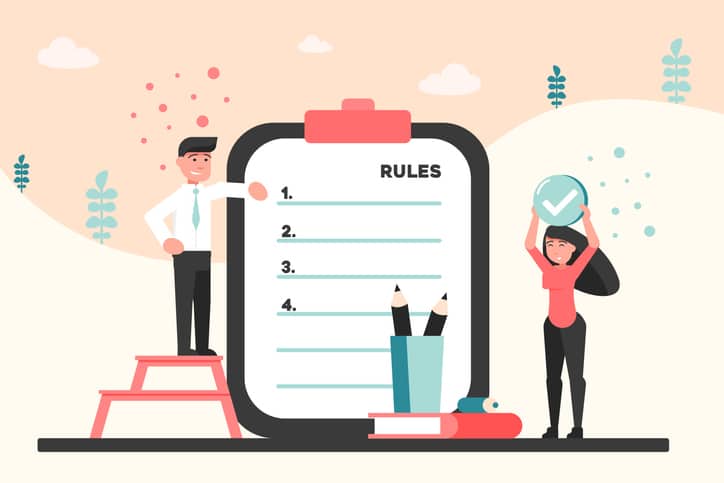In pondering the million dollar question of ‘how to be a good recruiter’, I realised this quest was too big to complete on my own. I decided to delve deep into the world of recruitment and discover what advice and insider knowledge I could gather from experienced external and internal recruiters.

With this purpose in mind, I interviewed two recruitment professionals; Andrew Grover and Phillip Neho.
Andrew is an external recruiter 8+ years of experience in agency recruitment. Andrew has owned, and developed recruitment agencies throughout his career. Phillip is an internal recruiter who originally began his career as an external recruiter and has over 14 years of recruitment experience in many different industries.
According to these experienced professionals, a good recruiter;
Must have high energy and be resourceful!
If you want to be a good recruiter you must stay on top of your work, constantly be motivated and put in the effort to make recruitment miracles happen.
Being a recruiter is similar to running your own business. You have to work hard, chase, follow up your stakeholders and loose ends, and analyse the attributes of your candidate and determine whether they’re going to add value to your stakeholders. As Andrew puts it, “you have to run a business within a business.”
In order to be a successful recruiter you have to have a good understanding of people… you need to develop the skill of determining someone’s true identity and capabilities. Once you’re able to do that, you’ll be able to successfully determine ‘candidate value’ and ‘business value’, therefore ensuring the two values align and result in a perfect match.
A recruiters job isn’t to simply find a plausible candidate, they have to “be able to sell opportunities to someone and sell the opportunity to the company and sell the person to the company.”
In saying that, recruitment isn’t like any other sales job because when a sales assistant is selling products everyone knows; what the product is, what it can do and how it can benefit you or your organisation. However, dealing with a person is different! We all know how to put on a poker face…. And our nose doesn’t grow every time we lie…
With people, there’s many variables. There’s many things a person can do and can’t do, and it’s a recruiters job to read their candidates, interpret their attributes, and be able to understand what value they can offer the business, and how the business can be of value to the individual.

I guess you could say recruiters are similar to cupid…. just without the bow and arrow.
In addition to ensuring you remain driven and hungry for success, you must also listen!
Phillip insists recruiters must not underestimate the power of listening to your stakeholders. Whether you’re an internal recruiter listening to your hiring manager, or an external recruiter listening to a job opportunity, you must listen attentively to the brief.
The reason? The more attentively you listen, the greater information you can retain and comprehend, therefore resulting in a better brief and understanding of what your task is. You can take the information from one stakeholder, and use it to gain better information from another stakeholder. You’ll be able to better select the candidate most suitable for the position. Additionally, in your search for a candidate you may come across a candidate that could be of value to the company for a position they aren’t currently hiring for. However, you know they would benefit the business because from listening attentively you understood the operations of the business and the teams current strengths and weaknesses.
Another benefit of listening? Relationship building! When you listen to your stakeholders it shows them that you respect them and care about the task you’re being briefed on, therefore it strengthens your relationship as you build a foundation of mutual respect and trust. This benefits you as they’ll trust your opinion and be willing to hear your ideas and thoughts! Therefore, if you find a candidate you think would be of benefit but has a different profile, or they aren’t hiring for that particular position, they will be more willing to hear your perspective.
These insights are useful for both external and internal recruiters. Phillip began his recruitment journey as an external recruiter, and Andrew also has experience with internal recruitment due to his position in his businesses. In fact, “most internal recruiters were external recruiters in their previous life.”
Whilst skills may differ between the two types of recruiter, both require managing stakeholders (external recruiters must keep various companies and candidates happy, internal recruiters must keep the company and their bosses happy). Thus, relaying back to running “a business within a business.”
Philip suggests the main difference between external and internal recruiters is the importance of customer service skills… he believes sometimes internal recruiters forget how important customer service can be as they recruit for a single organisation. However, as external recruiters are constantly dealing with various businesses and candidates their customer service skills are crucial to their success.
Andrew also touches on this as he mentions external recruiters must chase the work they want and be competitive in order to correctly match candidates to positions…there has to be an element of doggedness in the sense of external recruiters chasing stakeholders and candidates. Phillip agreed and acknowledges doggedness also must be present in an internal recruiter, therefore utilising the same skill just in a different manner. “External recruiters chase business development and candidates, whilst internal recruiters apply their doggedness to internal politics and company culture.”
Let’s recap. I know there’s a lot to digest…(quick snack and toilet break perhaps?)
So far, we’ve discussed good recruiters being:
- Motivated and Focused
- Hard Working
- Success Hungry
- Build customer service skills
- Listeners
So we know what makes a good recruiter, but what is the main difference between a good recruiter and bad recruiter?
According to Andrew, the #1 reason he sees recruiters fail to earn commission and progress in their career is because they let outside factors get in the way of their work. Therefore, in order to be a good recruiter you must be switched on and focused.. If “you’re not out there creating value you’re not going to succeed.”
Therefore, Andrew’s tip to all recruiters is; “When you walk in the door, about to start your day, think about what you want to achieve and leave everything else at the doorstep.”
Phillip, focusing more on internal recruitment, offers his #1 tip is to “undersell and overdeliver.” This is in regards to managing HR, however can be applied to all aspects of recruitment.
This statement insinuates you should always undersell; the position, the business, the value of the candidate and the time in which you can make a deadline. You must develop the skill of being able to determine where to draw the line…
….How can you undersell whilst still engaging your stakeholders and not destroying the perception of your performance?
Then, overdeliver. DON’T forget the second part to this tactic… never JUST undersell. By overdelivering you’ll exceed the expectations of your stakeholders, and therefore encourage the development of good relationships and a good reputation. This will aid opportunity growth and success.
There you have it, your in-depth guide in becoming a good recruiter…
Whilst the skills you develop is crucial to your career success, your recruitment process is equally as important in determining the success of your recruitment strategies and activities.
If you’re unsure whether your current recruitment and onboarding process is as effective as it could be, get in touch for a free consultation. We’re here to help you!
Work smarter, and not harder…





Blog comments